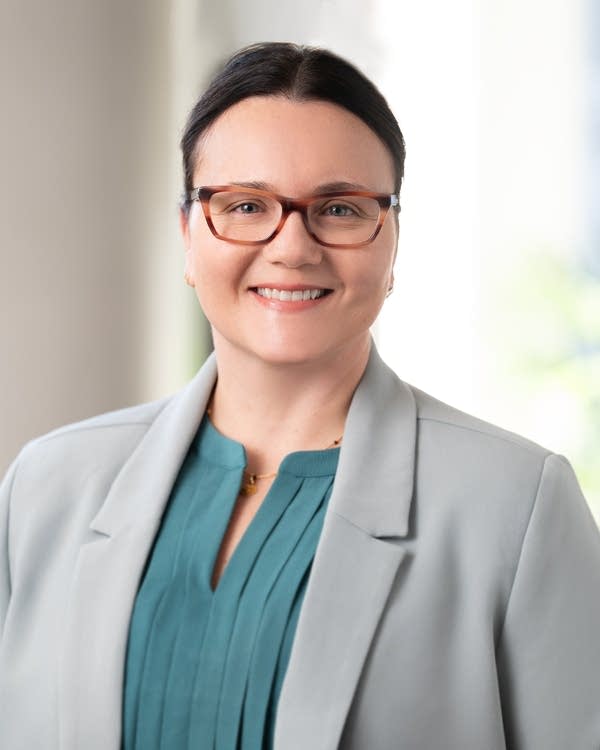The U.S. Senate has approved a rescission bill that cuts $1.1 billion for the Corporation for Public Broadcasting over the next two years. More than $17 million of that had been earmarked for 16 organizations in Minnesota, including MPR News and its sister music stations The Current and YourClassical.
The federal funding makes up about 6 percent of MPR’s budget.
The bill must now pass the House, which already approved an earlier version of the bill.

Chandra Kavati joined Morning Edition to talk about what the cuts could mean for MPR stations and its parent company, American Public Media Group. She’s president of American Public Media and does not directly oversee MPR.
Use the audio player above to hear the conversation, or read a transcript of it below. It has been lightly edited for clarity.
What does this mean for the budget at MPR and APM?
So what it means is that we were anticipating that our funds would come in, in October. That had previously been allocated. Those funds will not arrive. And so essentially what that looks like — between this as well as some state cuts — we are facing a $6 million deficit for this fiscal year. So pretty significant.
Many stations across the public media system have laid off staff to make up budget shortfalls. Will that happen here?
So we're in the midst of a deep financial review right now, and what I will say is that everything is on the table. However, we will hold our audience service at core, as well as fulfilling our public service mission. But that being said, there really are some tough choices ahead.
NPR gets a small share of funding directly from the Corporation for Public Broadcasting. A larger share comes in the form of programming fees from affiliates, including MPR. Might this clawback affect programs that stations buy from NPR?
It absolutely will. And you know, as part of our work here, we also distribute national programming. So a great example of that is Marketplace, which is a part of American Public Media.
And so what we know is that stations will also be in the midst of making tough decisions about how they consider their local audience service and when they turn to national programming. And so we think, yes, that there is a likelihood that there will be less national programming that will be available, and less national programming that public radio stations will turn to across the country.
Might American Public Media step up and fill the gap in national programming?
We are absolutely considering all opportunities at this point. What is most important to us is we really believe in a strong and vibrant public radio and public media community across the country, and so we are seeking opportunities to help step into the space, to offer programming, to really work with stations, because we don't want public service media to be at a disadvantage in communities. And so I think there's an opportunity.
And first and foremost, we want to make sure that there is a healthy network and system. And if there are spaces that we can step in to help, we will definitely do that.
Are you worried about small stations that serve rural audiences?
Absolutely. Even if we just really narrow in on the Upper Midwest, there are 12 stations here that get more than 30 percent of their funding through the Corporation for Public Broadcasting. That is quite significant, and we know that there absolutely will be stations that will not make it through to the other side of this across the country. And so this is going to sound dramatic, but it is going to be terribly catastrophic for a number of communities that are going to lose their essential public service through their community media stations.
Is there anything that listeners could do right now to help?
Well, first, I want to say thank you to all of the listeners and the members that have already stepped up. They really have. They have offered incredible support during this time — our employees as well. And what I would say is continue to do that.
It is not completely done and dusted. We still have the House vote in front of us. We're anticipating that, that likely will pass. And we will need you more than ever, especially as we go into this next year. So we appreciate that you've had our back until now, and we would really appreciate you continuing to help us so that we can continue to serve audiences here in Minnesota and support media stations across the country.
Disclosure: This story was produced by MPR News producer Gracie Stockton, senior producer Heidi Raschke and deputy managing producer Megan Burks. Editor Lisa Ryan edited the web story. When reporting on the business of MPR and public media, we do so independently from news executives and do not let them review material before it runs.




